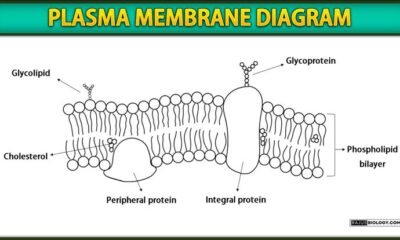Health
How to Choose the Right Vitamins and Supplements for Women

Taking care of your health and well-being is one of the best investments you can make in yourself. For many women, busy lifestyles, stress, and changing life stages mean that getting all the nutrients you need through food alone isn’t always realistic. That’s why dietary supplements and vitamins can play an important role in filling nutritional gaps and supporting your health goals.
But how do you know which vitamins are right for you? Let’s break it down step by step.
Understand Your Nutritional Needs
The first step in choosing the right supplements is understanding your body’s unique needs. Women’s nutritional requirements can change depending on age, activity level, pregnancy, or health conditions.
Young women (20s-30s): You may need extra iron if you have heavy periods, folic acid if you’re planning a pregnancy, and Vitamin D for strong bones.
Middle-aged women (40s-50s): Hormonal changes can affect your bone density and energy levels, so calcium, Vitamin D, and B vitamins can be important.
Older women (60+): Your body’s ability to absorb certain nutrients decreases with age. Vitamins B12, D, and calcium become more important to maintain bone and immune health.
Choose Quality Over Quantity
Not all supplements are created equal. It’s important to choose high-quality products from trusted brands. Look for companies that follow strict manufacturing standards and have third-party testing to ensure purity and potency.
When shopping for supplements, always read the labels. Avoid products with unnecessary fillers, artificial colors, or preservatives. If you have dietary restrictions, check for gluten-free or allergen-free options.
Do You Need Vitamins If You Eat Healthy?
One common question is whether you really need vitamins if you already have a balanced diet. In an ideal world, all our nutrients would come from fresh fruits, vegetables, whole grains, and lean proteins. But the reality is that even the healthiest diets can fall short due to busy schedules, limited food choices, or soil depletion affecting nutrient quality in produce.
Taking a multivitamin or specific supplements can help ensure you’re getting the right amounts of key nutrients every day. For example, Vitamin D is hard to get from food alone, and many people don’t get enough sun exposure to produce it naturally.
If you’re wondering which products are right for you, you can explore trusted options for women’s vitamins and choose what fits your lifestyle.
How to Take Vitamins Effectively
Once you’ve chosen your supplements, it’s important to take them correctly to get the maximum benefit.
Follow recommended doses: More isn’t always better. High doses of certain vitamins can cause side effects. Always follow the label or your doctor’s advice.
Take with food: Many vitamins, like A, D, E, and K, are fat-soluble, meaning they absorb better when taken with meals that contain healthy fats.
Stay consistent: Make taking your supplements a daily habit. Set a reminder on your phone or keep them in a visible spot so you don’t forget.
Talk to a Healthcare Professional
While supplements can be helpful, they should never replace medical advice. Before starting any new vitamin or supplement, talk to your doctor or a registered dietitian, especially if you have existing health conditions or are taking medication. They can help you choose the right dosage and make sure there are no interactions with other medicines.
Other Tips for Women’s Health
Remember, vitamins work best when combined with healthy habits:
Eat a balanced diet: Supplements should fill gaps, not replace real food. Include plenty of colorful fruits and vegetables, whole grains, lean proteins, and healthy fats in your meals.
Stay active: Regular exercise supports your immune system, bones, and overall well-being.
Manage stress: High stress can deplete important nutrients like B vitamins and magnesium. Practice mindfulness, get enough sleep, and make time for self-care.
Final Thoughts
Choosing the right vitamins and supplements doesn’t have to be confusing. By understanding your body’s needs, selecting high-quality products, and maintaining a healthy lifestyle, you’ll be well on your way to looking and feeling your best.
If you’d like to explore carefully curated options, check out the range of women’s vitamins and find what works for you!

 Blog8 months ago
Blog8 months ago[PPT] Human Reproduction Class 12 Notes
- Blog8 months ago
Contribution of Indian Phycologists (4 Famous Algologist)
- Blog8 months ago
PG TRB Botany Study Material PDF Free Download

 Blog8 months ago
Blog8 months agoCell The Unit of Life Complete Notes | Class 11 & NEET Free Notes

 Blog8 months ago
Blog8 months ago[PPT] The living world Class 11 Notes

 Blog8 months ago
Blog8 months agoPlasma Membrane Structure and Functions | Free Biology Notes

 Blog8 months ago
Blog8 months agoJulus General Characteristics | Free Biology Notes

 Blog8 months ago
Blog8 months agoClassification of Algae By Fritsch (11 Classes of Algae)













